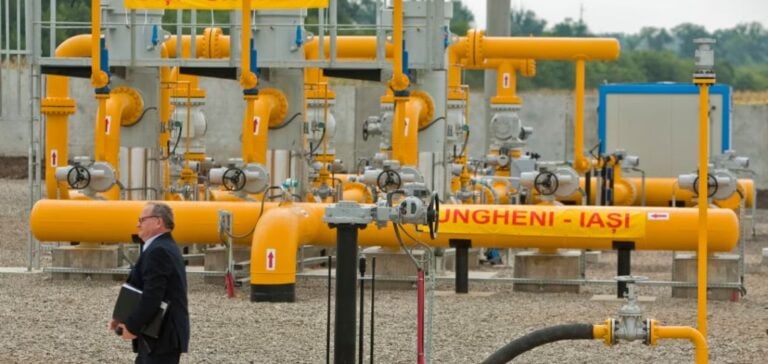The cessation of Russian gas deliveries to the separatist region of Transnistria in Moldova on January 1, 2025, has severely disrupted local economic activity. According to Sergei Obolonik, the economic affairs manager of the pro-Russian authorities, industrial companies have reduced their operations by 80%, while essential infrastructure struggles to remain functional.
A financial dispute at the root of the crisis
The energy conflict stems from a financial dispute between Gazprom, the Russian energy giant, and Moldovan authorities. Transnistria, which benefited from gas without direct payments, passed the obligation onto Chisinau, Moldova’s capital. This arrangement created a significant debt to Gazprom, prompting the company to halt its supplies.
Despite ongoing negotiations, no long-term solution has been found, plunging the 450,000 residents of this region into an acute energy and economic crisis.
Consequences on local infrastructure
The gas cuts have forced local authorities to adopt strict measures to limit damage. Schools and kindergartens, numbering 131 and 147 respectively, have been disconnected from the network, while university exams will be conducted exclusively online.
The private sector, primarily focused on manufacturing, has come to a standstill, except for food production companies. Local authorities have advised the population to ration energy consumption and avoid using artisanal heating methods.
Moldova under geopolitical pressure
Although Moldova, supported by Romania, has not been directly affected by the gas cutoff, it remains heavily reliant on electricity from the Cuciurgan power plant located in Transnistria. Moldovan authorities have condemned this decision as “energy blackmail,” escalating political tensions between Chisinau and Moscow.
The suspension also highlights structural vulnerabilities in the region, potentially leading international investors to reconsider their commitments. For Moldova, securing new energy supply sources has become a strategic priority.
Long-term impact on the industrial sector
The paralysis of industrial activities in Transnistria could have significant repercussions on the regional economy. Dependence on Russian gas, coupled with the lack of international recognition, complicates the search for viable energy alternatives. Experts estimate that the situation could persist for several months, reducing local companies’ competitiveness.





















